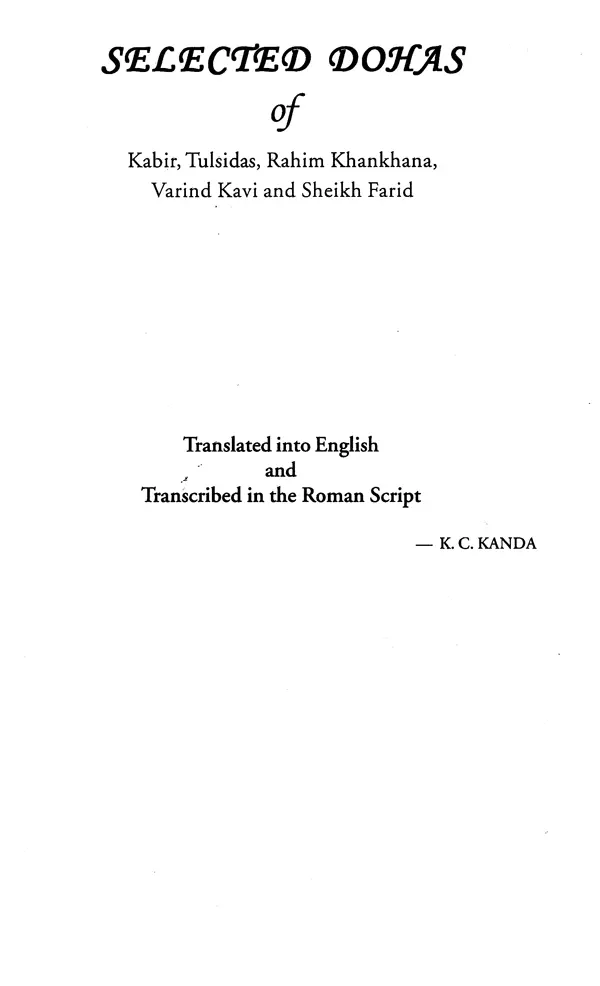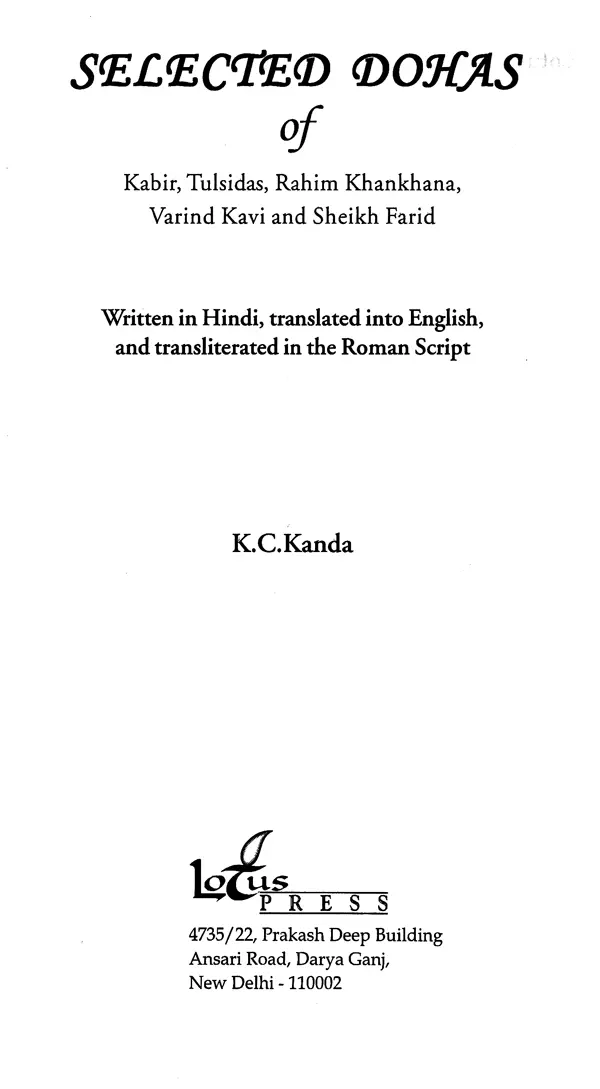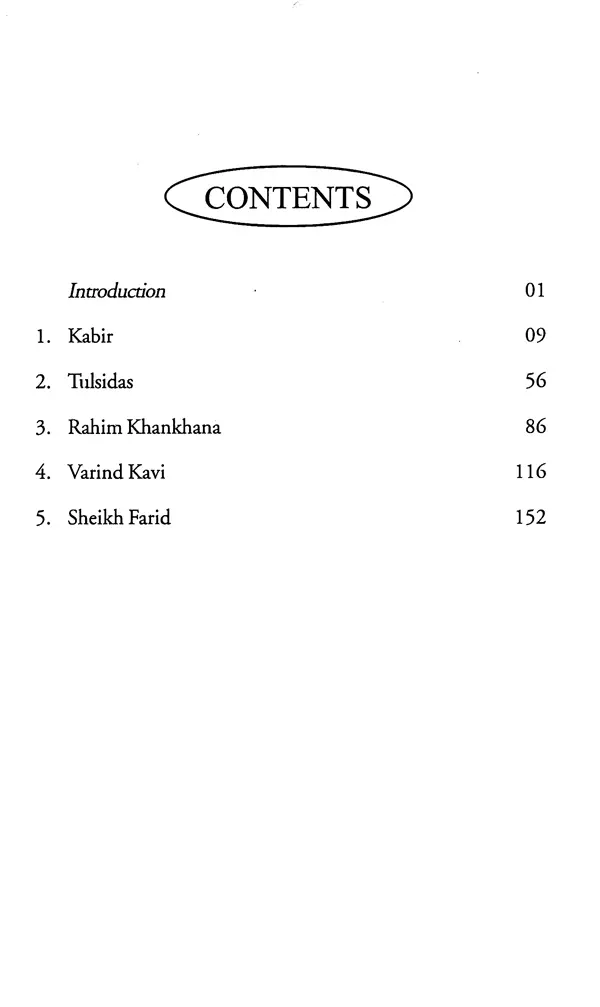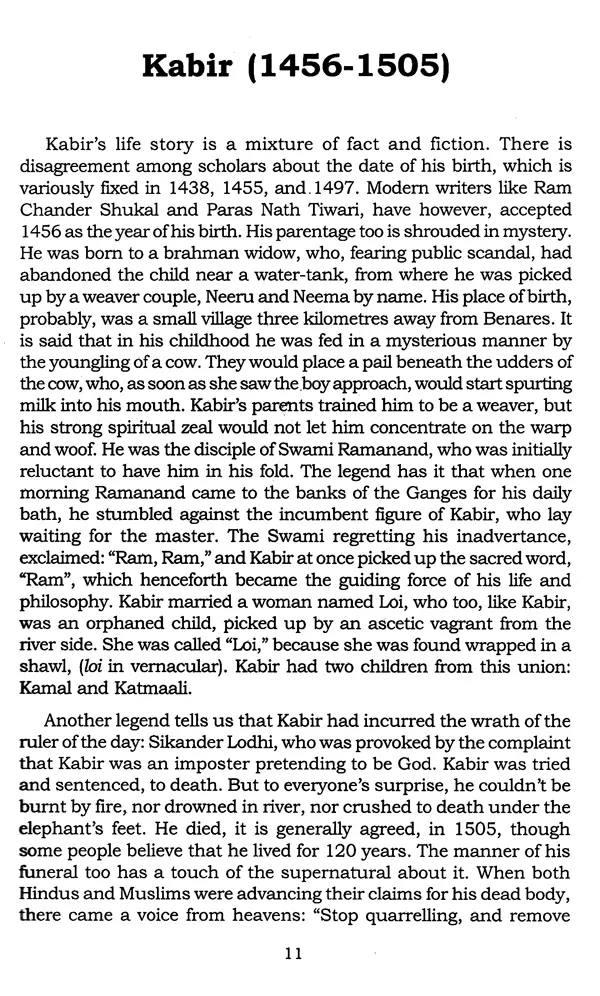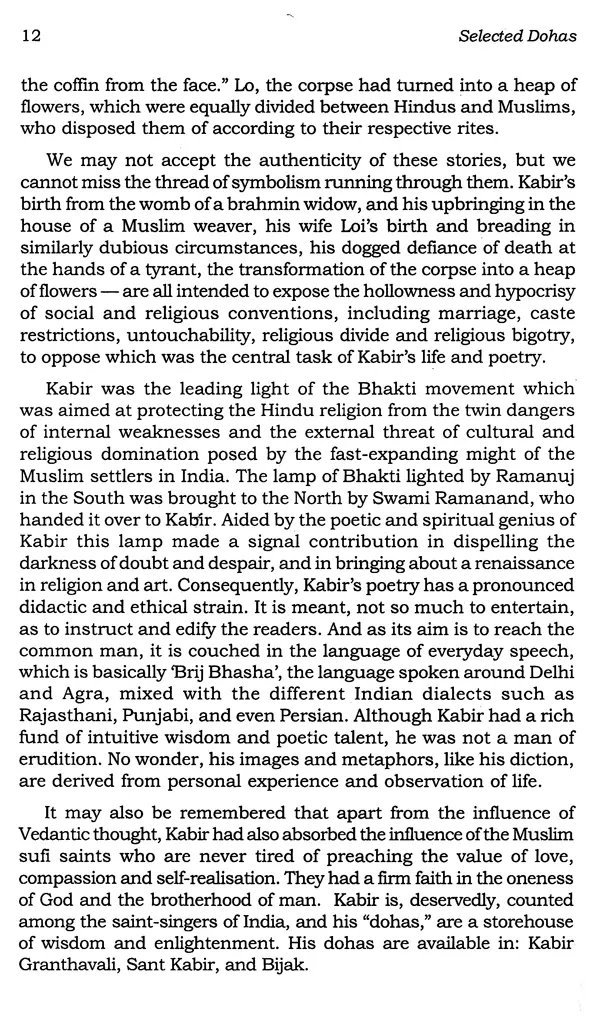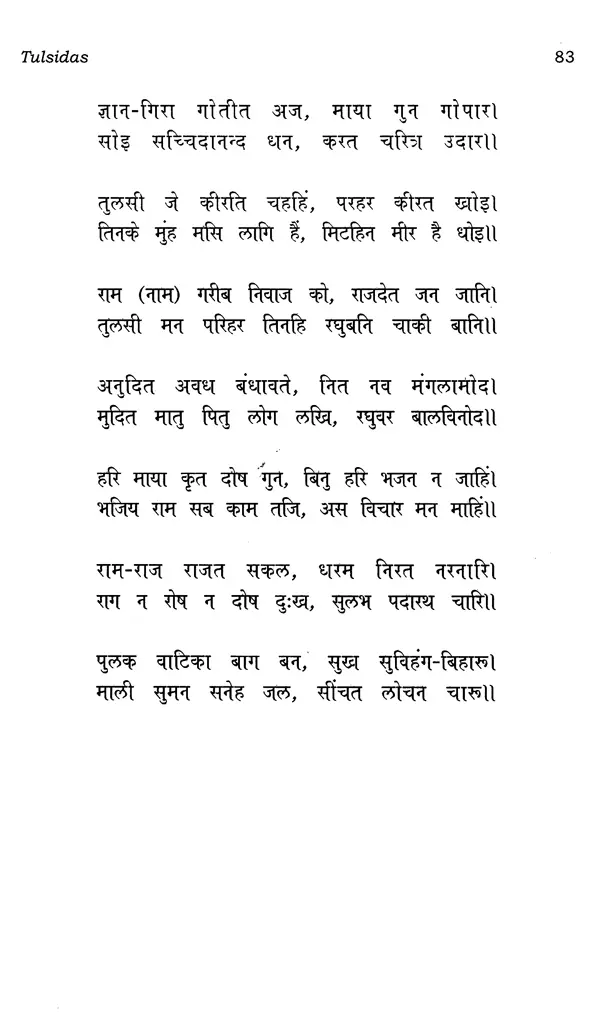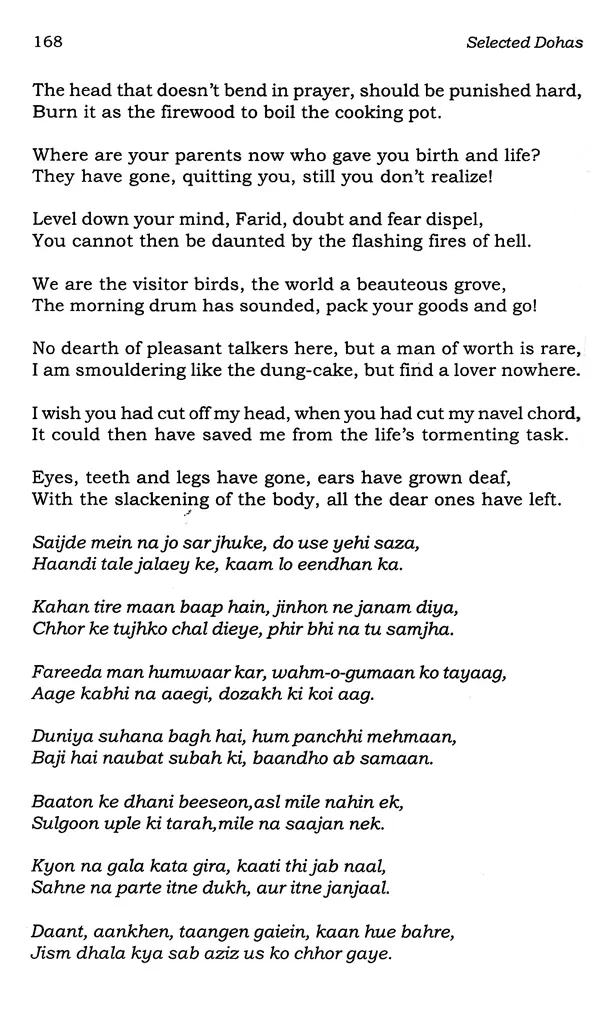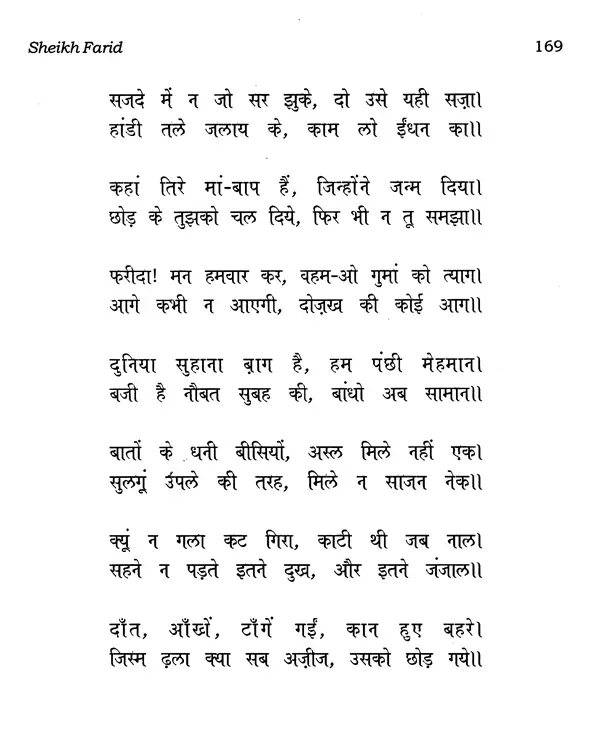
Selected Dohas
Book Specification
| Item Code: | UBD196 |
| Author: | K. C. Nanda |
| Publisher: | Lotus Press, New Delhi |
| Language: | Hindi Text With English Tranliteration and Translation |
| Edition: | 2022 |
| ISBN: | 9788183821551 |
| Pages: | 190 |
| Cover: | PAPERBACK |
| Other Details | 8.50 X 5.50 inch |
| Weight | 240 gm |
Book Description
This book is meant to introduce the reader to the famous dohas' of five Hindi poets: Kabir, Tulsi, Rahim Khankhana' Varind Kavi and Sheikh Farid. The book contains 523 'dohas', which have been thoughtfully selected and faithfully rendered into English language, lucid, rhythmical and appropriate. The translation attempts to retain the beauty of rhyme and assonance, the special features of a 'dohas', which account for their musicality and memorability.
Each poet is first introduced with a brief biographical-cum-critical note which gives a foretaste of the 'dohas' to come.
The book begins with a general introduction to the form and features of the 'Dohas", which is fairly comprehensive and informative. Then follow the series of selected 'dohas' in Hindi, their transcription in the Roman script, and their translation into English. It is hoped that this book will be warmly received by lovers of literature, including especially those readers who are not familiar with Hindi in the Devnagri script.
K. C. Kanda has had a long and distinguished tenure as a Reader in English at Delhi University. He holds a doctorate in English from Delhi University, Master's degrees in English from Punjab University and Nottingham University and a first class first M. A. Degree in Urdu from Delhi University. While English poetry has been his forte professionally, Urdu poetry, and poetry in general has been his love since his schooldays. In the special area translated poetry, this is his 20th title.
Dr. Kanda was given the Urdu Academy award for 'excellence in translation' in 1997. He is currently working on the poetry of Josh Malihabadi. Most of his books are published by Serling Publishers, New Delhi.
The Doha (like the Chaupai) may be counted among the most popular meaures of Hindi poetry. It is a short meaure consisting of two rhyming lines each of which has, generally, a pause in the middle, breaking the couplet into four parts to enhance its musicality and rhythmic flow. The language used in a doha is by and large simple, straight-forward and speech- like; it makes no rigorous demands on the reader's powers of comprehension. The subject matter of a doha is generally ethical and edifying, of equal relevance to the commoners and connoisseurs alike. Because of its easy accessibility, and musicality, and the universal appeal of its thought content, the doha makes a quick impact on the mind of the reader and sinks effortlessly into his memory, so that he can relish its meaning and music at leisure. Apparently easy and short, the writing of a good doha is indeed a difficult task. It requires on the part of the poet a rich fund of knowledge and wisdom, a poetic sensibility. and a high degree of poetic competence to compress deep thoughts in just two lines of verse. Quite often, the poet also mentions his own name in the doha. As such the doha writing is, to use an old adage, the art of condensing a river into a pitcher. A good doha may be called a capsule of concentrated wisdom which, when unscrewed, floods the reader's mind with delight and enlightenment. It may be likened to an Urdu shaer, or to the Augustan couplets of Dyden and Pope, short and pithy, simple in style, but rich in content. "True wit," said Alexander Pope,
True wit is nature to advantage dressed
What oft was thought but ne'er so well-expressed.
The idea expressed in a doha may not be original, nor need it be embellished with tricks of fancy and imagination. Rooted in good sense, the doha should be morally and spiritually uplifting, and aesthetically pleasing.
